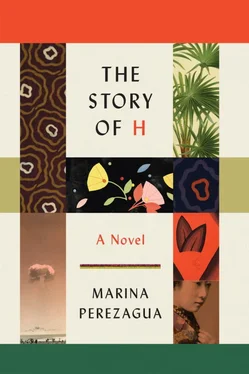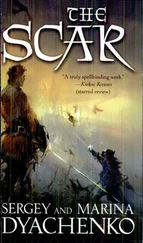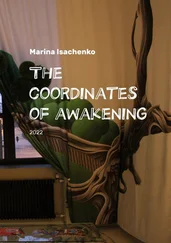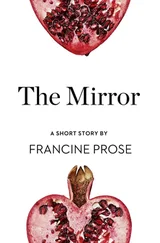This absence was the perfect ground for a maternal instinct to flourish once I met Jim, and the search for his daughter substituted for the absence of my son. I seized on his daughter as if she were my own. I absorbed every detail Jim gave me of her story and retained it in my memory as if I had lived it out myself. So even though I may not have experienced it, I still remembered it, and that memory was like a suction cup on my brain’s wall. It held up the memory of Jim’s daughter—my daughter—and maintained it firmly, the way the pads of a lizard’s feet fasten onto the wall so it doesn’t fall off into the void. That was all I had for a long time. The void.
Death Forgot My Hour
I convinced Jim to take the search for his daughter to Japan, a country I’d been back to only twice, a country he’d never wanted to return to, and where—he said—he didn’t expect to receive any help with our research. But I had a hard time understanding why he hadn’t begun his research at what I assumed was the beginning.
We took a direct flight to Tokyo, the city where Yoro had been delivered into his care by American occupation forces on May 7, 1950, though according to her birth certificate she had been born sixteen days earlier, on April 22. The provisional military hospital where they’d done the exchange was closed down eleven years later, and by the time we arrived, it had become a wing of the Tsukiji Fish Market, Tokyo’s biggest. The demand for nourishment on the part of the living had imposed itself, though not without the customary forgiveness the Japanese always beg of the dead. So a sort of respect governed all movement, all sounds in the market, as if a death cult were imbuing the fish’s blood with sacred significance in the last few seconds of its life.
Having grown accustomed to my adopted country, I could appreciate some of the differences between how Jim’s mind worked and my own in the way the produce in the Japanese market was presented. The fish in Tsukiji were arranged into sections according to species. On one side, the sayori, or halfbeak, and on the other, salmon. There were great green areas with countless varieties of seaweed. Occasionally a whale loaded on a truck would pass by. The way the produce was arranged in the Tokyo market made it seem like a museum, while American markets are arranged more like bazaars. And the distinctive ways of sorting content seemed to mirror the ways in which Jim and I were so different. I remember an English tourist who approached us once to ask Jim a question, obviously because he looked Western. Before walking away, he mentioned he’d overheard us speaking and congratulated Jim on his Japanese. It wasn’t the first time someone had made a comment like that, and it always made me laugh because Jim and I communicated in a sort of pidgin. What the tourist heard wasn’t really Japanese, but a sort of mangled language that nevertheless allowed Jim to communicate, more for the worse than for the better, in both English and Japanese. But I quit laughing when I realized how this in-between language had become a reflection of the mental limbo that both of us lived in sometimes.
At the outset, we simply didn’t understand each other. Not that we didn’t get along just fine. It had nothing to do with cultural differences; it was more as if our brains shared the same evolutionary stratum, but from two different planets. What might have led me into a grilling of or an argument with someone else, with Jim became a hesitation, a respectful deferral to another form of intelligence, and I would resign myself to that detachment, which I could stand for one vital reason: despite everything, we understood each other in bed from the get-go, because as you’ll soon come to see, my experiences in bed are always foreshadowed by a despite everything .
I finger through one of my notebooks from that time. These notebooks are the only things that have followed me everywhere. My memory. I pasted a photo of an Edo period painting on the cover. It’s a whale hunt. The water must be red. But the reddened sea fades out gracefully; otherwise it would overwhelm the ocher tones of the coast. Seeing this painting reminds me of something Jim always used to say: in Japan the beauty of varnish conceals the rotten wood they use to build the homes. I granted him that, even from the hybrid state that is my identity. But I’m not glossed over with varnish. My face, all my scars, they show exactly what I am. Nothing can match the bomb for candor. The shade of the color of the kill in the Edo period painting was softened so as to temper the contrasts, but the bomb acted naturally. It revealed the hues of the whale’s blood in a red-stained sea as if to say: I am the true paintbrush, the one with uranium bristles.
The rest of the notebooks on the table have gray covers. There’s something else that distinguishes Hiroshima survivors. It’s a sound I hear every time I see this particular shade of gray, a sort of synesthetic effect. It’s in the voice, that distinctive voice of the hibakushas. While not every survivor bears the marks of the explosion on his or her skin, all of them have it in their voice. We all sound alike: we speak in a kind of cropped tone, jagged and with stretch marks, as if some dead person were clawing at a white sheet trying to rip through it to be born again. I think it’s why I associate the voice of survivors with the color gray, the hue of white skin that goes ashen, the shade of inert dust advancing toward life. Something that’s neither white nor black, neither dead nor alive.
I remember people telling me about those first days after the bomb, when I lay in the ruins of what had been the hospital, how people could be seen shuffling around with outstretched arms. They’d been blinded and were trying not to stumble over other survivors, though even the ones who could still see held their scorched and gummy arms out to keep them from sticking to their bodies. They weren’t the living dead, but the living dying. They used canola oil, the kind used for cooking, to alleviate the burns. When that was gone, the survivors with enough strength would make their way to the train station to milk the cars like cows for the black motor oil, thick and pasty; they’d plaster it all over their faces or bodies, blackening the red blisters and the black of their charred skin.
Being in Tokyo again brought all of it back, all these images I’m describing returning as fresh as the newly delivered fish at the Tsukiji market. I jotted things down in my notebooks—impressions, descriptions that I could draw on now—but even if I was to lose these notes, I think I’d be able to re-create them anew, word for word, not because my memory is so precise, but because my senses react to these memories the same way now as they did then. I mean, I could write in these same notebooks for the first time, over and over again. Time’s fish never rots in my memory. That was Tokyo. The city we re-encountered was like a huge fresh-smelling tuna that took the edge off our appetites but never actually provided nourishment. The harder Jim and I looked for Yoro, the tighter things closed around us. And so the fish’s scales constricted into a slick airtight surface that slipped from our hands. Jim was right; we’d never find a lead there. Tokyo closed its doors to us; in fact it never even let us glimpse the doors.
As often happens when one is just starting out on an undertaking, before one’s strength begins to flag, I had such a surfeit of energy that it clouded my ability to distinguish between fact and fancy. Since Jim had launched this endeavor much earlier than I did, he was in that place where exhaustion forced him to prioritize and conserve energy. Be that as it may, it was during this trip that the link was created between my own maternity and the search for Jim’s daughter. Locating her offered the greatest chance life had manifested thus far to actually make me a mother. So the daughter of the man I’d fallen in love with at first sight also became mine, with the simplicity and truth of things that don’t need an explanation. I was twenty-eight years old. He was quite a bit older. Both of us were old enough to know what we wanted.
Читать дальше












